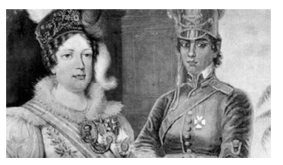Questões de Vestibular de Inglês
Foram encontradas 5.955 questões
The expression “Broadly speaking” (second paragraph) indicates that what follows is a general take on the subject, without considering exceptions or specificities.
Judge the follow item concerning the ideas and linguistic features of the previous text.
In the last sentence of the first paragraph, the words “others” and “yours” are both in their plural form.
If the ideas defended in the text were applied to the global context of relations among countries, it would be correct to conclude that countries, in general, are never completely independent.
Judge the follow item concerning the ideas and linguistic features of the previous text.
For the author, given their universal and absolute character, human rights are one of the few exceptions to the limits imposed by the freedom of others.
The pronoun “themselves” (in the third sentence of the second paragraph) refers to “Some philosophers”, in the same sentence.
The word “Yet”, in the third sentence of the second paragraph, introduces a statement that stands in contrast to what the author writes about the creation of the Empire of Brazil in the preceding sentences.
The passage “the broader political and intellectual context of the time, full of conceptual innovations” (in the last sentence of the first paragraph) could be correctly rewritten as a context of greater political and intellectual changes happening during an era when all innovations were of an abstract nature, without changing its meaning.
Based on the text presented, judge the follow item.
The last sentence of the text would still be correct and maintain its original meaning if a comma were placed before “who”, and another after “politics”.
The author suggests that preservation, re-creation and reorganization are complementary ideas which explain the history of Brazilian independence and its consequences.
Not only does the text oppose the ideas of continuity and innovation in the context of Brazilian independence, but it also indicates that historians do not have a unanimous view on the topic.
From the excerpt “The process that started in 1807” (in the third sentence of the first paragraph)”, it can be correctly concluded that the author is referring to the transfer of the Portuguese royal family to Brazil.
Based on the text presented, judge the follow item.
The author claims that the Brazilian independence process stemmed partly from events prior to 1807, which were not mentioned in the text.

favor of Dom Pedro I’s permanence in Brazil. 8 In “Throughout this process” (second paragraph), the first word indicates that examples of women writing about their views can be found all through the process of independence.

The text mentions Maria de Lourdes Viana Lyra as one of the women who, just before Brazilian independence, were in favor of Dom Pedro I’s permanence in Brazil.

The statement that, in general, women were to be concerned solely with their homes and families is explained by the gender-based division of social tasks and roles in effect at that time in Brazil.

The passage “which they believed was a key factor” (first paragraph) could be correctly rewritten in the passive voice as which was believed to be a key factor, without this changing the meaning and coherence of the text.

Considering the ideas and linguistic aspects of the text above, judge the follow item.
Even though the press supported women who were in favor of Brazilian independence, it did not help them in their struggle for their rights.

In the title of the letter alluded to in the first paragraph, the word “her” is used four times with the same meaning and could correctly be replaced by his in all four cases, had the letter been written to the Prince.

Considering the ideas and linguistic aspects of the text above, judge the follow item.
It can be correctly inferred from the text that the general public is unaware of many different facts which led to Brazilian independence.

are examples of the “famous figures” alluded to at the beginning of the second paragraph of the text.